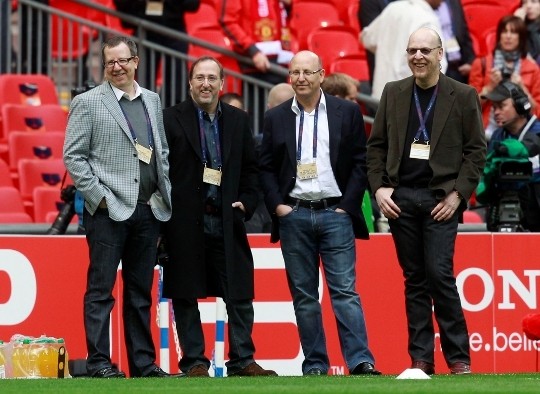Football is definitely a rich man’s game and recent years have proven that, at the very top level of club football in Europe, it is a game for the mega rich to dabble in. Leading the way, in more ways than one, is the Middle East from whence oil revenue is key to the acquisition and development of some of Europe’s top clubs. Someway behind and one wonders for how long, is the expansion of sponsorship by Russia’s Gazprom, the world`s biggest natural gas producer.
Real Madrid is the most valuable football club in the world, $3.3 billion in 2013, but they still have a lot of catching up when it comes to the field of sponsorship. In 2012 Real became the first club ever to generate 500 million euros in revenue but being the most valuable club, despite lagging behind in sponsorship, comes at a price.
The football club dropped the Christian cross on its famous emblem after signing a lucrative sponsorship deal with the National Bank of Abu Dhabi in November 2014. A new credit card, sponsored by the bank, will double as a Real Madrid membership card. The gesture, to placate Muslim fans, will only apply inside the UAE, outside the region the club crest remains unaltered.
Qatar Sports Investments became Paris St Germain’s majority shareholder in 2011 and the following year became sole shareholder helping make PSG the richest club in France and one of richest in world. The group followed up by becoming the first to sponsor Barcelona’s shirts after the Catalan club steadfastly refused to carry commercial sponsorship on their famous striped kit. Yet another sign of the globalisation of 21st century football where, like leading clubs in the UK, European counterparts have been eager to cash-in on markets world wide. It is that far flung eagerness that has made the Premier League the cash cow it has become and a magnet for overseas television rights sales.
Growth of sponsorship and investment, particularly from the oil rich Middle East, shows how connections with that income stream has seen top clubs in Europe dabbling just to keep pace whereas previously such tie ups provided a boost to keep such clubs ahead of the game. Now it`s necessary just to be in the game.
The Barclays Premier League is the richest in the world so it is of no surprise that two of the top clubs have Middle Eastern sponsorship/ownership.
The City Football Group, a holding company under the control of the parent company, Abu Dhabi Group, took over Manchester City in September 2008 and immediately ploughed money into club. The ADUG did not have to wait too long for a return on its huge investment as City won the FA Cup in 2011, The Premier League in 2012, the Football League Cup in 2013 and the Premier League again in 2014.
Arsenal sold the naming rights to its stadium to Emirates Airways in a five year deal worth $240 million while, as recently as December last year, the airline increased its sponsorship with one of the most successful clubs in European football, AC Milan. The airline first sponsored the San Siro club in 2007 and the new deal runs through until the end of the 2019-20 season.
Emirates is also one of the main sponsors of Real Madrid and a current five year deal for shirt sponsorship will earn the Spanish giants $39 million annually for the next five years though it falls someway short of the $80 million GM pay Manchester United but is fractionally more than Barcelona get from Qatar Airways, $38 million per annum.
Manchester United’s $600 million deal with Chrysler is more than twice the amount previous shirt sponsors, AON, paid. The American company obviously more than aware of the club`s reported 659 million global following and United is responsible for earning 11% of all sponsorship of the major European leagues.
Then of course we have Gazprom. The Russian gas company owns Zenith St Petersburg and in 2007 they sponsored Schalke 04, a deal which was recently extended to 2017 with an increased income reportedly 20 million euros per annum. That will certainly help ease Schalke`s reported deficit, allegedly, in the region of 170-200 million euros.
Schalke is seen by many observers as a mere stepping stone to Bayern Munich. What could be more natural than progressing from a national brand to a global one? It would seem a logical next step to get on a par with European clubs whose influence and following extends worldwide, i.e. Manchester United, Real Madrid, Barcelona etc. Gazprom are also reportedly trying to extend their reach in to Italy where a number of Serie A clubs have been targeted.
The influx of foreign money into European football has certainly created an uneven playing field where only the super rich can play but there is another and more ominous portent of the future of football.
How long before the Champions League, which replaced the European Cup, originally for national league champions, is itself replaced by a Super League for which entry criteria and reward is one and the same, financial? How long before the big clubs from the Premier League, Serie A, La Liga and the Bundesliga are criss-crossing the continent to play each other on a regular basis to the detriment of their own domestic leagues?
Not long I fear.
The article was written by Brian Beard.
Add Sportslens to your Google News Feed!
